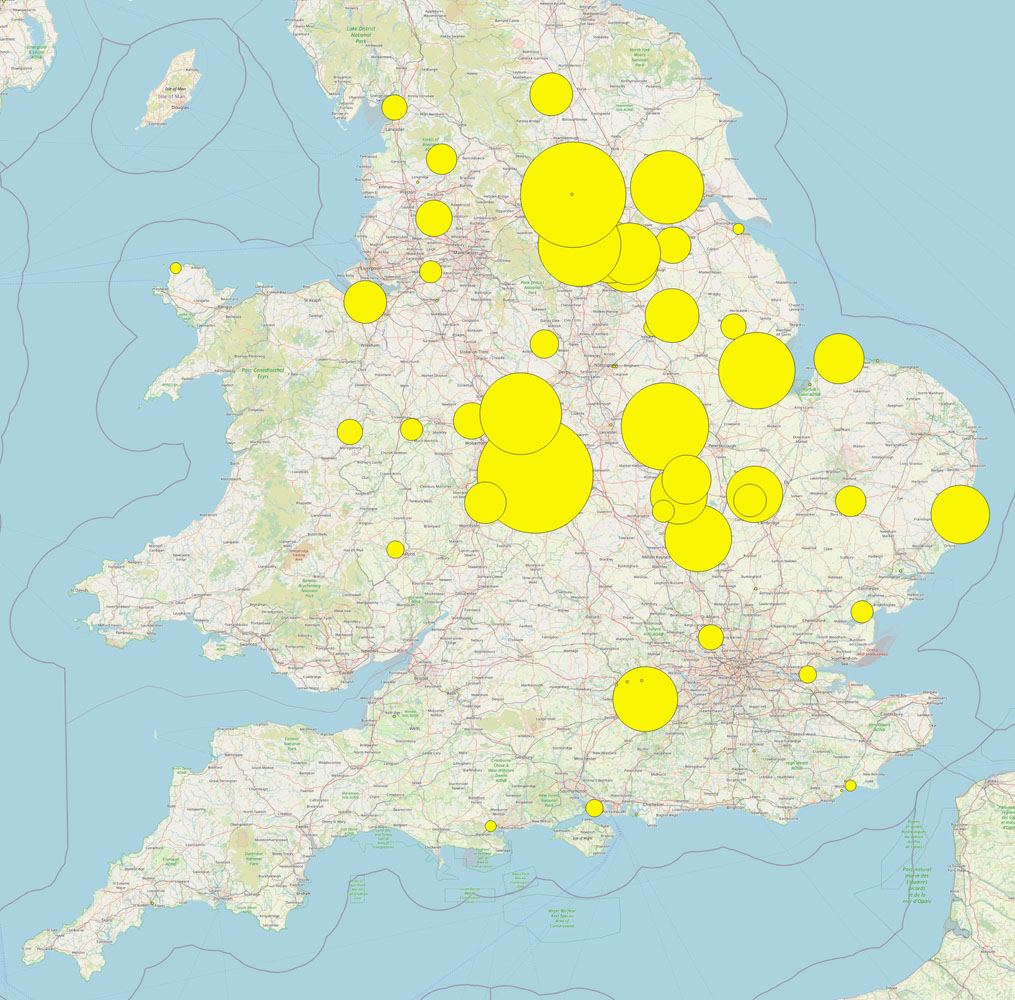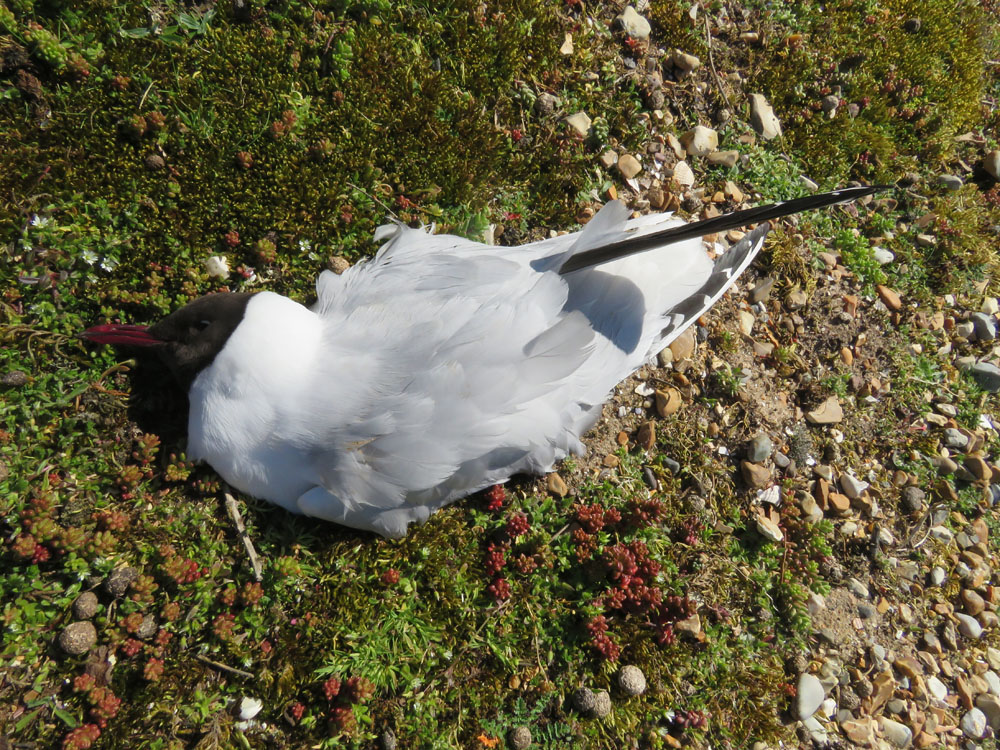Black-headed Gull bearing brunt of new wave of bird flu
Avian infuenza is killing large numbers of Black-headed Gulls at breeding colonies, mainly in the Midlands and northern England.
The worst-hit site has been Marsh Lane Nature Reserve, West Midlands, where more than 1,500 Black-headed Gulls are thought to have died from H5N1. A further 800 have died at St Aidan's RSPB, West Yorkshire, with 250 more dead at Rutland Water. Other cases have been reported as far south as Surrey and Hampshire, and as far west as Montgomeryshire.

Suspected and proven cases of avian influenza in Black-headed Gulls have been concentrated in central and northern England (BTO).
Few of the dead birds have been tested but current sampling suggests that avian influenza is driving the mortality, amounting to 1% of the UK's 140,000 pairs of Black-headed Gulls dying over the last few weeks. The species has been in decline for a number of years, leading to it being placed on the Amber List of Birds of Conservation Concern in 2021.
As well as potentially worsening the conservation outlook for Black-headed Gull, there is concern that the virus could spread to species sharing the same wetlands, such as Avocet, Common Tern and, at coastal colonies, Sandwich Tern.
The situation follows reports of Black-headed Gull mortality in France, the Low Countries, Italy and Germany earlier in the year. Ringing data shows that British Black-headed Gulls often winter in western continental Europe, indicating a possible route of transmission.
In addition to the mortality at UK breeding colonies this spring, reports of large numbers of dead Black-headed Gulls have also come from Belgium, The Netherlands, Germany, Denmark and Poland this spring.

The public is advised not to touch dead or dying birds but to report sightings on BirdTrack so the situation can be monitored (BTO).
Members of the public are advised not to touch dead or sick birds and to keep dogs on leads to prevent contact with infected birds.
Professor James Pearce-Higgins, BTO Director of Science, said: "Last year saw avian influenza kill tens of thousands of seabirds at the UK’s internationally important coastal breeding colonies. The latest news about Black-headed Gulls shows that the virus is now impacting inland colonies, too."
Pearce-Higgins called for members of the public to help monitor the situation by reporting sightings of dead or sick birds online.
He added: "Black-headed Gulls breed at a wide range of inland waterbodies, which makes them much more obvious to members of the public. Everyone can help us to understand more about the ongoing outbreak of this very worrying disease by reporting any dead birds they do see via BirdTrack and to DEFRA's online portal."
In Britain, all dead wild birds should be reported via the BirdTrack app (www.birdtrack.net) and also reported to DEFRA using the new online reporting system so they may be collected for testing, or by calling the DEFRA helpline (03459 33 55 77)
In Northern Ireland, please report to BirdTrack, as well as to DAERA by calling 0300 200 7840.

